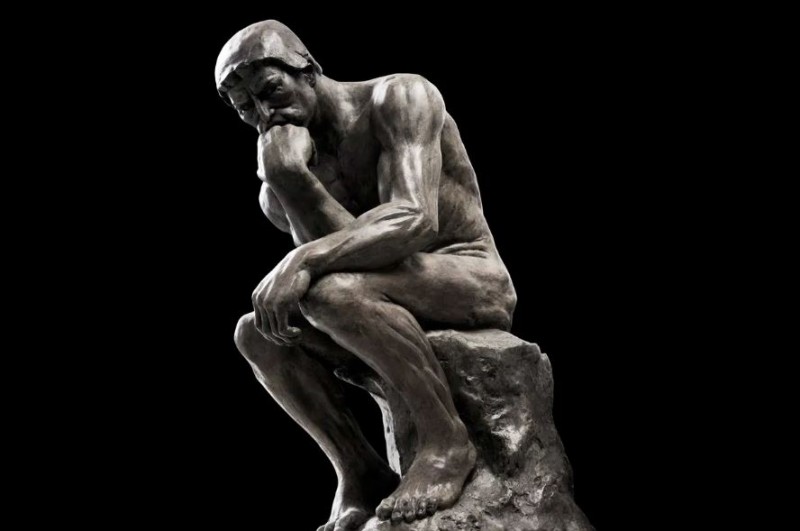
Introduction
Philosophy, the study of fundamental questions about existence, knowledge, ethics, and more, has been a subject of exploration for centuries. Throughout history, various schools of thought have emerged, each offering unique perspectives and insights into the nature of reality and human existence. In this article, we will delve into the diverse landscape of philosophical traditions, spanning from ancient times to the present day.
The Pre-Socratic Philosophers
The journey through the development of philosophical thought begins with the Pre-Socratic philosophers. These ancient thinkers sought to understand the nature of the world and its underlying principles. Figures like Thales, Anaximander, and Heraclitus proposed different explanations for the origin and composition of the universe, laying the foundation for later philosophical inquiry.
The Classical Greek Philosophers
The Classical Greek philosophers, including Socrates, Plato, and Aristotle, introduced profound ideas that continue to shape philosophical discourse. Socrates emphasized the importance of self-examination and the pursuit of knowledge, while Plato delved into the realm of ideal forms and the nature of reality. Aristotle, known for his systematic approach, explored ethics, logic, and metaphysics, contributing immensely to various branches of philosophy.
Eastern Philosophical Traditions
In parallel with the developments in Western philosophy, Eastern philosophical traditions emerged, offering alternative perspectives on reality and the human condition. Philosophies such as Confucianism, Taoism, and Buddhism focus on moral principles, harmony with nature, and the nature of suffering and enlightenment. These traditions provide valuable insights into different ways of understanding the world and human existence.
Medieval Western Philosophy
During the medieval period, Western philosophy was greatly influenced by Christian theology. Figures like Thomas Aquinas integrated Aristotelian philosophy with Christian doctrine, seeking to reconcile reason and faith. This era also saw the rise of philosophical debates surrounding the existence of God, the nature of evil, and the mind-body problem.
The Enlightenment and Modern Philosophy
The Enlightenment marked a significant shift in philosophical thinking, emphasizing reason, individualism, and skepticism towards authority. Thinkers like René Descartes, John Locke, and Immanuel Kant laid the groundwork for modern philosophy. Descartes' famous phrase "I think, therefore I am" illustrates his exploration of knowledge and the mind-body dualism. Locke's ideas on personal identity and the social contract influenced political philosophy, while Kant revolutionized ethics with his concept of categorical imperative.
Existentialism and Phenomenology
Existentialism emerged as a response to the crises of the 20th century, emphasizing individual freedom, authenticity, and the meaning of existence. Figures like Jean-Paul Sartre, Albert Camus, and Friedrich Nietzsche explored themes such as existential dread, the absurdity of life, and the role of personal choice. Phenomenology, developed by Edmund Husserl and later expanded by Martin Heidegger, aimed to describe the structures of conscious experience and the ways in which humans interact with the world.
Analytic and Continental Philosophy
The 20th century also witnessed the division between analytic and continental philosophy. Analytic philosophy, prominent in the English-speaking world, focuses on logical analysis, language, and the philosophy of mind. Figures like Bertrand Russell and Ludwig Wittgenstein made significant contributions to this tradition. Continental philosophy, on the other hand, emphasizes hermeneutics, existentialism, and critical theory. Thinkers like Jean-Paul Sartre, Jacques Derrida, and Michel Foucault influenced this school of thought.
Postmodernism and Deconstruction
Postmodernism emerged as a critical reaction to modernism, challenging traditional notions of truth, identity, and objectivity. Postmodern thinkers, such as Jean-François Lyotard and Jean Baudrillard, questioned grand narratives and explored the power dynamics embedded in language and discourse. The deconstructionist approach of Jacques Derrida further dismantled binary oppositions, uncovering hidden meanings and complexities in texts.
Ethics and Moral Philosophy
Ethics and moral philosophy investigate questions of right and wrong, moral values, and ethical decision-making. Different ethical theories, such as utilitarianism, deontology, and virtue ethics, provide frameworks for evaluating moral choices. Philosophers like John Stuart Mill, Immanuel Kant, and Aristotle have contributed extensively to this field, offering diverse perspectives on ethical reasoning.
Epistemology and Metaphysics
Epistemology focuses on the nature of knowledge, its limits, and how we come to know things. Metaphysics, on the other hand, explores the fundamental nature of reality, including questions about the existence of God, the mind-body relationship, and the nature of time and space. Thinkers like David Hume, René Descartes, and George Berkeley have grappled with these profound philosophical inquiries.
Philosophy of Mind and Consciousness
The philosophy of mind seeks to understand the nature of consciousness, subjective experience, and the mind-body problem. Philosophers like Thomas Nagel and John Searle have explored the mystery of consciousness and the challenges of explaining how mental states relate to physical processes in the brain.
Political Philosophy and Social Contract Theory
Political philosophy examines the nature of power, governance, and the role of the state in society. Social contract theory, proposed by thinkers like Thomas Hobbes, John Locke, and Jean-Jacques Rousseau, explores the hypothetical agreement between individuals and the government to establish social order. Concepts like justice, liberty, and equality are central to political philosophy, shaping discussions on democracy, rights, and social justice.
Conclusion
Philosophy encompasses a vast landscape of ideas, theories, and perspectives, offering insights into the fundamental questions of human existence. From the ancient philosophers to the modern thinkers, each school of thought contributes to our understanding of the world and ourselves. By exploring the diverse branches of philosophy, we enrich our intellectual and existential journey.
Jung Kook: Rising Star of BTS and Philanthropic Influencer
Parineeti Chopra: From Ambala to Bollywood Stardom
EAM Jaishankar, Manalo co-chair India-Philippines bilateral co-operation